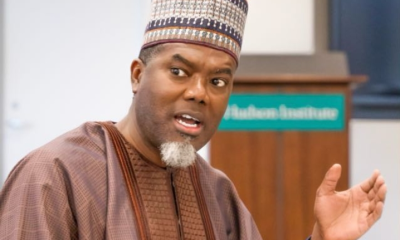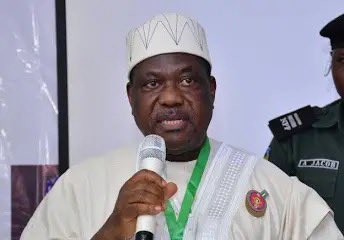OPINION
Ambassadorial Appointments Should Be Based On Competence, Not Political Loyalty

By Isaac Asabor
In the ever-changing landscape of global diplomacy, ambassadors play an important and multifaceted role. They represent their countries, build alliances, and act as go-betweens in negotiations that could alter the course of history. Ambassadors are not just emissaries; they are also strategists, negotiators, and cultural envoys. For a country like Nigeria, with its enormous potential and complex challenges, the choice of ambassadors has significant implications for its international standing. However, appointing ambassadors based on partisan politics rather than competence and experience poses a significant risk to the country’s interests.
The appointment of ambassadors based on political patronage is not unique to Nigeria, but the consequences are more pronounced in countries with high stakes. Nigeria’s thriving economy, cultural diversity, and regional influence in Africa necessitate a diplomatic corps that is not only knowledgeable but also deeply committed to advancing the country’s strategic objectives. However, the trend of valuing political loyalty over expertise has frequently resulted in the appointment of individuals who may lack the necessary skills for effective diplomacy.
Ambassadors serve as a nation’s international face and voice. They are responsible for representing their country’s interests in foreign nations and multilateral organisations. Their responsibilities include negotiating trade agreements and advocating for their country’s positions on global issues. This critical role necessitates a distinct set of skills, including cultural intelligence, negotiation ability, and a thorough understanding of international relations.
In Nigeria, ambassadors are extremely important. Nigeria, Africa’s most populous country and largest economy, wields considerable power. Its ambassadors must be prepared to use their influence to secure favourable trade agreements, attract foreign investment, and form strategic alliances. They must also work to improve Nigeria’s image, combat negative stereotypes, and dispel common misconceptions about the country.
Ambassadors also play an important role in regional stability. Nigeria is frequently referred to as the “giant of Africa,” a title that entails responsibilities. Nigerian ambassadors must take the initiative to promote peace and security across the continent, particularly in conflict-affected areas. They must engage in diplomatic efforts to resolve conflicts, support democratic governance, and promote regional integration.
When ambassadorial appointments are influenced by partisan politics, the emphasis shifts from merit to loyalty. This practice reduces the effectiveness of the country’s diplomatic efforts. Individuals appointed for political reasons may lack the necessary experience or qualifications to navigate the complexities of international relations. Their failure to effectively represent Nigeria’s interests can lead to missed opportunities and, in some cases, diplomatic blunders.
For example, an inexperienced ambassador may struggle to connect with key stakeholders or understand the nuances of their host country’s political and cultural landscape. This may limit their ability to form meaningful relationships, negotiate effectively, or advocate for Nigeria’s interests. In the long run, such shortcomings can harm Nigeria’s standing in the international community.
Furthermore, partisan appointments frequently foster an atmosphere of inconsistency in Nigeria’s foreign policies. When ambassadors are replaced with each change of administration, the country’s diplomatic agenda risks becoming fragmented. Continuity is critical in diplomacy, and frequent personnel changes can disrupt ongoing initiatives and undermine Nigeria’s credibility.
Diplomatic experience is a necessity, not a luxury. Seasoned diplomats bring extensive experience, established networks, and a track record of success. They are better able to anticipate obstacles, seize opportunities, and navigate the complexities of international relations.
An experienced ambassador recognises the value of establishing trust and credibility with host countries. They are skilled negotiators who can achieve favourable outcomes for their country while maintaining positive relationships. Their expertise enables them to handle sensitive issues with finesse, avoiding potential conflicts and promoting mutual understanding.
In addition to their professional skills, experienced ambassadors have a strong cultural sensitivity that allows them to connect with people from a variety of backgrounds. This quality is especially important in Nigeria, which has a rich and diverse cultural heritage. An ambassador who values and promotes Nigeria’s cultural heritage can boost the country’s image and soft power.
Ambassadors serve as both political and economic emissaries, as well as cultural ambassadors. They play an important role in spreading their country’s culture, values, and traditions. Cultural diplomacy is a powerful tool for bridging national divides and promoting mutual respect and understanding.
For Nigeria, cultural diplomacy has enormous potential. The country’s vibrant music, literature, fashion, and cuisine have captivated the world. Ambassadors who can effectively highlight Nigeria’s cultural diversity can help attract tourists, foster cultural exchange, and boost the country’s global reputation. This necessitates individuals who are not only passionate about their country’s culture, but also skilled at presenting it in a way that appeals to a diverse audience.
To protect Nigeria’s interests and maximise the effectiveness of its diplomatic efforts, merit and experience must be prioritised in ambassadorial appointments. A merit-based system would ensure that ambassadors are chosen based on their qualifications, expertise, and track record, not their political affiliations.
This system could include a thorough vetting process that assesses candidates’ knowledge of international relations, negotiation skills, and cultural intelligence. It could also include training programs to provide ambassadors with the necessary tools to succeed in their roles. Nigeria can build a team of ambassadors who are both capable and committed to advancing the country’s strategic goals by investing in the development of its diplomatic corps.
Furthermore, Nigeria should strive for consistency in its foreign policies. This necessitates a long-term outlook that transcends political cycles. Ambassadors should be given the time and resources they need to carry out their initiatives and produce meaningful results. Nigeria’s diplomatic efforts can be strengthened by reducing the frequency of personnel changes.
The appointment of ambassadors is a critical decision with long-term consequences for a country’s diplomatic success. For Nigeria, a country with enormous potential but significant challenges, it is critical to prioritise experience and expertise in ambassadorial appointments. By doing so, Nigeria can ensure that its ambassadors are properly equipped to represent the country, build meaningful relationships, and advance its strategic interests.
Partisan politics have no place in diplomacy. The stakes are too high, and the consequences of incompetence are too serious. By adopting a merit-based approach to ambassadorial appointments, Nigeria can strengthen its diplomatic corps, improve its global standing, and maximise the potential of its international engagements. Diplomacy is both an art and a science, requiring the sharpest minds and most capable hands. For Nigeria, the path to a brighter future begins with prioritising diplomacy over politics.
At this point, it is important to clarify that the inspiration for expressing this opinion was prompted by recent news that the Federal Ministry of Foreign Affairs has urged the public to disregard a rumoured list of ambassadorial nominees circulating on social media, labelling it as false and deceptive.
In a recent statement, the Ministry’s Acting Spokesperson, Kimiebi Imomotimi Ebienfa, emphasised that President Bola Ahmed Tinubu has sole authority to appoint ambassadors. The statement added that no formal nominations have been made thus far.
“Please disregard the commotion surrounding the ambassadorial list,” the statement read. “Be assured that once finalised, the President will send the list of nominees to the National Assembly for screening and confirmation.”
The ministry assured citizens that once an official list is ready, the public will be notified via proper channels.
This clarification comes amid growing interest in Nigeria’s diplomatic representation, particularly in light of the recall of all ambassadors in September 2023.
-
CRIME3 years ago
PSC Dismisses DCP Abba Kyari, To Be Prosecuted Over Alleged $1.1m Fraud
-
FEATURED3 years ago
2022 Will Brighten Possibility Of Osinbajo Presidency, Says TPP
-
FEATURED2 years ago
Buhari’s Ministers, CEOs Should Be Held Accountable Along With Emefiele, Says Timi Frank
-
BUSINESS & ECONOMY2 years ago
Oyedemi Reigns As 2023’s Real Estate Humanitarian Of The Year
-
SPORTS1 year ago
BREAKING: Jürgen Klopp Quits Liverpool As Manager At End Of Season
-
SPORTS2 years ago
Could Liverpool Afford Kylian Mbappe For €200 million? Wages, Transfer Fee
-
ENTERTAINMENT2 years ago
Veteran Nigerian Musician, Basil Akalonu Dies At 72
-
FEATURED2 years ago
Tribunal Judgement: Peter Obi Warns Of Vanishing Electoral Jurisprudence, Heads To Supreme Court
-
BUSINESS & ECONOMY2 years ago
Oyedemi Bags ‘Next Bulls Award’ As BusinessDay Celebrates Top 25 CEOs/ Business Leaders
-
FEATURED3 years ago
2023 Presidency: South East PDP Aspirants Unite, Demand Party Ticket For Zone



































